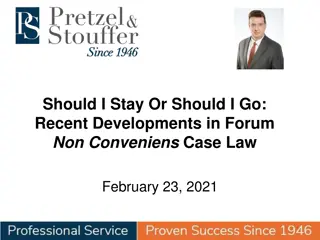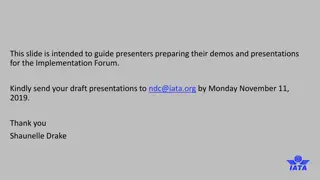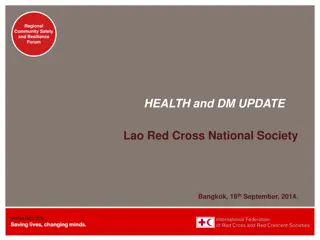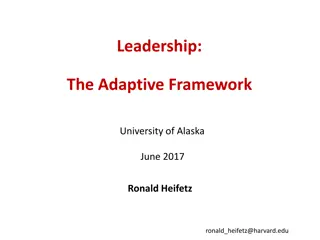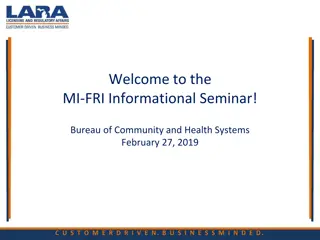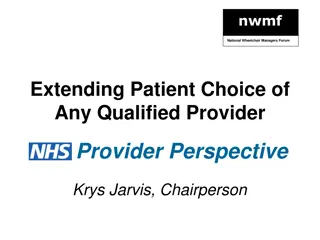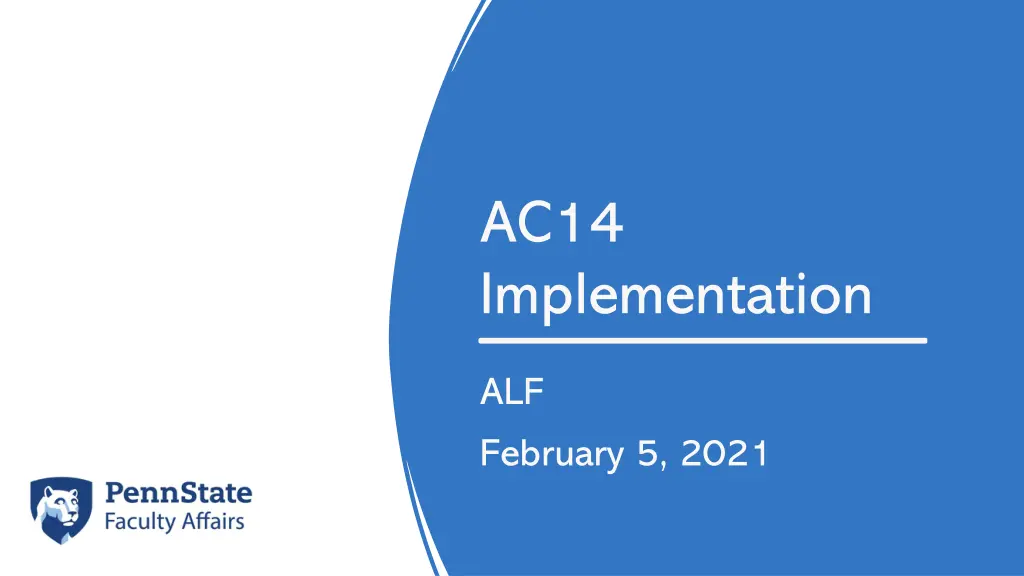
AC14 Implementation Process for Annual Faculty Reviews of Administrators
"Learn about the implementation process for AC14 focusing on annual faculty reviews of academic administrators. Discover the purpose, stakeholders involved, timing, and the survey structure. Faculty and staff play key roles in this process, ensuring effective feedback delivery and evaluation."
Download Presentation

Please find below an Image/Link to download the presentation.
The content on the website is provided AS IS for your information and personal use only. It may not be sold, licensed, or shared on other websites without obtaining consent from the author. If you encounter any issues during the download, it is possible that the publisher has removed the file from their server.
You are allowed to download the files provided on this website for personal or commercial use, subject to the condition that they are used lawfully. All files are the property of their respective owners.
The content on the website is provided AS IS for your information and personal use only. It may not be sold, licensed, or shared on other websites without obtaining consent from the author.
E N D
Presentation Transcript
AC14 Implementation ALF February 5, 2021
Process College of Medicine Planning Committee ALC Faculty Affairs Advisory Committee OPAIR
Purpose Revision to AC14 to include Annual Faculty Reviews of Administrators Those subject to annual review include academic administrative officers including: assistant and associate VPs vice presidents assistant and associate deans deans and chancellors department and division heads directors of research units directors of academic affairs chief academic officers school directors Those being reviewed do not have to supervise faculty but should have faculty in their unit. Deans/chancellors may make final determination about who should/should not be reviewed, dependent upon specific circumstances
Who is involved? Both faculty and staff will serve as reviewers Reviewers will be asked if they are faculty or staff; results broken out by faculty/staff Faculty asked whether they report directly to the person they are reviewing Points of note: Joint appointments should review administrators in the unit of their tenure home Center and institute directors will not be reviewed in the first year of implementation Academic administrators undergoing a 5-year AC14 review are not subject to the annual review in the same year
Timing Spring semester Feedback delivered as part of regular annual review process Pre-Survey: January to mid- February Survey Administration: mid-Feb. to mid-March Compilation of feedback: mid-March to mid-April Distribution of feedback: late April to early May Identification & confirmation of reviewers and reviewees Communication re: process and timeline Survey distribution Reminder Compilation of data for each reviewee Distribution of data for each reviewee to the unit Unit executive distillation/filtering of feedback if desired Distribution of feedback to reviewees Distribution of response tool to reviewees if desired by the unit Annual review meetings
The Survey Open-ended: Considering the challenges that have faced the academic unit (campus, college, dept), please describe the leader s strengths. Which of the leader s characteristics would you like to see improve? Likert: Please rate this individual s overall leadership. (scale 1-7 or prefer not to answer) Adapted from the College of Medicine
Survey Distribution Surveys administered by OPAIR via Qualtrics Each reviewer will receive one email with a unique link OPAIR will be able to see the identities of the respondents; these will be removed prior to sending them to the unit. Therefore, the results that are sent to the units will be anonymous.
Compilation of Feedback Results will not be provided to administrators for whom there are 5 or fewer faculty responses or staff responses. The results of the first and second open- ended responses will remain coupled. OPAIR will send the compiled responses to each unit executive (dean, chancellor).
Distribution of feedback Unit executives may choose to filter, with the assistance of the HRSP if desired, the feedback prior to supplying the feedback to each academic administrator. The unit executive may request that the academic administrator complete a "Goal Setting Response to Feedback" survey in response to the feedback received. The academic administrator will meet with the unit executive to review both the feedback and, if requested, the administrator s response to it.This review meeting should be considered part of the administrator s regular annual review.
The Goal Setting Response to Feedback Please list the strengths that you were glad to see noticed by faculty. Considering the feedback you received, please specify and detail a plan for up to 3 goals for the next academic year. Specify at least one and up to three goals for the next year. In addition to next year s evaluation, how will you seek to measure if you have been successful? (List method of measurement for each goal above.) Are there any parts of the feedback with which you disagree? If you indicate yes, you ll be asked to explain your reasoning. You ve indicated that you disagree with specific parts of the feedback. Please use this space to explain which parts and why you hold this opinion. Adapted from the College of Medicine
Roles and Responsibilities Academic Administrator VPFAOffice UnitExecutive OPAIR HRSP Develop and coordinate process Coordinate any necessary training Develop universal communications to units Provide training to unit executives on annual review meetings Evaluate process Create surveys in Qualtrics Create lists of reviewers and reviewees; review with units Distribute surveys Collect feedback and collate by reviewee and distribute to unit executives Review reviewer and reviewee lists for accuracy prior to survey administration At the discretion of unit executive, review feedback to identify areas of concern May review reviewer and reviewee lists for accuracy prior to survey administration Review feedback for each reviewee; distill if necessary Conduct annual review meetings Review feedback Complete survey responding to feedback Discuss feedback in annual review meeting with unit executive
Assumptions for academic administrators lessons from the College of Medicine Formative process Opportunity for reflection and leadership development You may get some criticism or even 'pot shots' Your job is to respond as non-defensively as you can, celebrate the positive observations, and determine what you can learn from this Do not allow unfair criticism to eclipse messages you do need to hear.
Assumptions for unit executives This is a formative process There may be bias Some jobs require heavier lifts than others
Questions and Discussion





